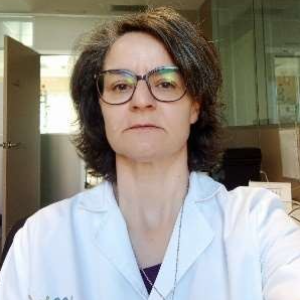Title : Effect of distillation on the yield and polyunsaturated fatty acid content of Lavandula latifolia and Salvia lavandulifolia Vahl. seeds. A commitment to the revaluation of their productions
Abstract:
The European Union is strongly committed to achieving greater environmental, economic, and social sustainability in the agro-industrial sector. Therefore, it is essential to reduce waste generation, and if necessary, recycle waste from agri-food production by adopting circular economy models. Regarding this concern, the Region of Murcia (southeastern Spain) has large areas of Lavandula latifolia and Salvia lavandulifolia Vahl rainfed crops. These aromatic plants are usually harvested when the shrubs achieve the phenological stage of full bloom to the beginning of fruit maturation, and essential oils are extracted by distillation of the entire aerial part of the plants, including seeds. This agri-industry process generates a significant amount of waste.
Numerous studies have highlighted the abundance of bioactive compounds in the residue from the distillation of aromatic and medicinal plants, particularly in their leaves and flowers. Nonetheless, there is currently a lack of data on the presence of these bioactive components in seeds after the distillation process. Previous studies have described the seeds of both species as new sources of polyunsaturated fatty acids (Pufas), with an omega-3 and omega-6 lipid profile, respectively. These chemical characteristics make them candidates for use in the food (functional ingredients or nutraceuticals) or pharmaceutical industries.
In this context, the main objective of this study was to assess the possible effect of distillation on oil yields and fatty acid profiles of the seeds. To this end, fresh and distilled seeds were analysed considering oil yield through cold extraction and the quality of the fatty acid profile measured by gas chromatography-mass spectrometry after methylation, in accordance with ISO standard 12966-2:2017. Distillation affected seed oil yield differently in each species under study. Specifically, L. latifolia showed a loss equivalent to 20% of the initial oil content while no differences were observed in yield between fresh and distilled seeds in the case of S. lavandulifolia. Regarding fatty acid profile, the L. latifolia oil was rich in omega-3 PUFAs, with quantitative differences between treatments. Specifically, distilled seeds had significantly higher oleic acid (18.3%) and lower linolenic acid (12.4%) content than fresh seeds, while there were no significant differences in the other fatty acids analysed. In contrast, in S. lavandulifolia oil, omega- 6 PUFAs were the dominant fatty acid type. Further, the distillation process showed a negative effect on the fatty acid profile, with losses of up to 19% in oil content detected in all the components identified.
Nonetheless, these results demonstrate that it is still possible to recover oils from distillation residues and suggest that it would be feasible to implement new protocols in the industrial processing of L. latifolia and
S. lavandulifolia crops, to comply with the principles of waste prevention and resource recovery in the EU's sustainability policies.
Audience Takeaway:
- The results indicate the possibility of using Spanish sage and spike lavender seeds as a new source of oils rich in bioactive components, including omega-6 and omega-3 PUFAs and hence, provide the basis for further research.
- Knowing the potential of these seeds as a source of nutraceuticals or food ingredients, other researchers could extrapolate this idea to other agricultural waste products.
List all other benefits:
- Currently unexploited aromatic and medicinal plant seeds are shown to have potential as a new source of bioactive components with nutritional interest.
- The results may help develop approaches to enable full exploitation of aromatic and medicinal plants including processing residues, and hence, contribute achieving Goal 12 (Ensure sustainable consumption and production patterns) in the 2030 Agenda for Sustainable Development.
- Our findings suggest new avenues for rural development.



